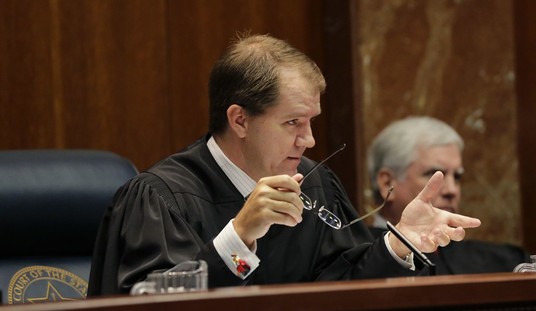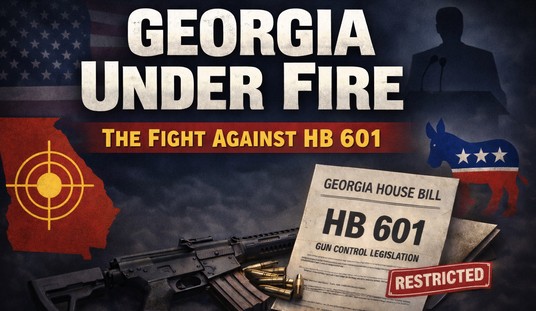With the state of Utah poised to become the 17th state in the Union to adopt permitless or Constitutional Carry, the right-to-carry revolution is gaining ground at a critically important time. In just a matter of weeks the Supreme Court is set to consider accepting a challenge to New York’s far more restrictive and subjective carry laws called New York State Rifle & Pistol Association vs. Cortlett, and Utah’s move to strengthen the right to bear arms is more evidence that New York’s own gun licensing laws are an unconstitutional anomaly that should be struck down.
The state Senate in Utah approved the Constitutional Carry bill on Friday afternoon, just a day after its first vote on permitless carry on Thursday, with the bill garnering support from more than 2/3rds of the senators on hand. Just six Democrats voted against HB 60, with some arguing in favor of amending the legislation to exempt Salt Lake City from its provisions.
During the floor debate, Sen. Kathleen Riebe, D-Cottonwood Heights, introduced an amendment that would exclude counties with populations higher than 700,000 people from the bill.
Noting recent “turmoil” in Salt Lake County, Riebe said she has “received numerous emails very concerned about how this would impact our county.”
Sen. Derek Kitchen, D-Salt Lake City, agreed, adding that the county is an “immense, diverse” district where some people sleep on streets and others live in multimillion-dollar homes.
I’m not sure why that would matter. People who live in gated communities and people who sleep in a tent on the street both possess the same right to keep and bear arms, and arguably those on the streets have a more acute need for self-defense while having less money to devote to obtaining a concealed carry license. An “immense, diverse” county still has to recognize the right of the people to keep and bear arms, but Kitchen and Riebe would like to set up a two-tiered system for Utah that would make the Second Amendment a second-class right depending on the population size of any given county.
New York most definitely relegates the Second Amendment to the status of an inferior right by virtue of its carry laws, which allow local law enforcement the final say in whether or not an individual is “suitable” to carry a gun for self-defense. The state is just one of eight left in the nation to maintain these subjective licensing laws. Meanwhile, sixteen states have adopted Constitutional or permitless carry while keeping their “shall-issue” concealed carry licensing system in place.
As Open Source Defense pointed on Twitter Thursday evening, the right-to-carry revolution in the United States since the 1980s has moved in one direction; towards full recognition of the right of the people to keep and bear arms.
It bears repeating that the revolution in carry laws over the past 30 years hasn't gotten as much discussion as it deserves.
1986: 1 state unrestricted, 8 shall-issue, 25 may-issue, 16 no-issue
2021: 16 (and soon 17) states unrestricted, 26 shall-issue, 8 may-issue, 0 no-issue https://t.co/X0UYG6agsO
— Open Source Defense (@opensrcdefense) February 4, 2021
The Supreme Court will have a great opportunity to take up the issue of the right to carry when it bring the Cortlett case to conference in a few weeks. With Justice Amy Coney Barrett now on the bench, the votes should be there for SCOTUS to accept the case. The biggest challenge will be convincing the judge’s that the New York challenge isn’t superseded by a 2012 decision from the Second Circuit that found New York’s licensing regime to be constitutional. The Supreme Court refused to hear that case, but the plaintiffs in Cortlett argue that other appellate courts have disagreed with the Second Circuit’s rationale, and that split needs to be resolved by the highest court in the land.
To my mind, the issue here is simple. Not only does the text of the Second Amendment protect a pre-existing right to bear arms in self-defense, but the history and tradition of that right clearly demonstrates that the vast majority of states in 2021 recognize that the average citizen cannot be denied that right without also depriving them of their civil liberties. New York and a handful of other states are still bitterly clinging to the idea that law enforcement should be the ultimate arbiter of determining who should be permitted to exercise a fundamental and individual right, and the Supreme Court should find that idea utterly repugnant to the ideals of the Constitution.
We’ll likely know in a relatively short period of time if that argument is enough to persuade at least four justices to accept the case. New York’s responding brief is due to the Supreme Court on February 22nd, and Cortlett could be scheduled for the Court’s conference soon after.
Editor’s Note: Want to support Bearing Arms so we can tell the truth about Joe Biden and the Left’s radical gun control agenda? Join Bearing Arms VIP. Use the promo code GUNRIGHTS to get 25% off your membership.









Join the conversation as a VIP Member